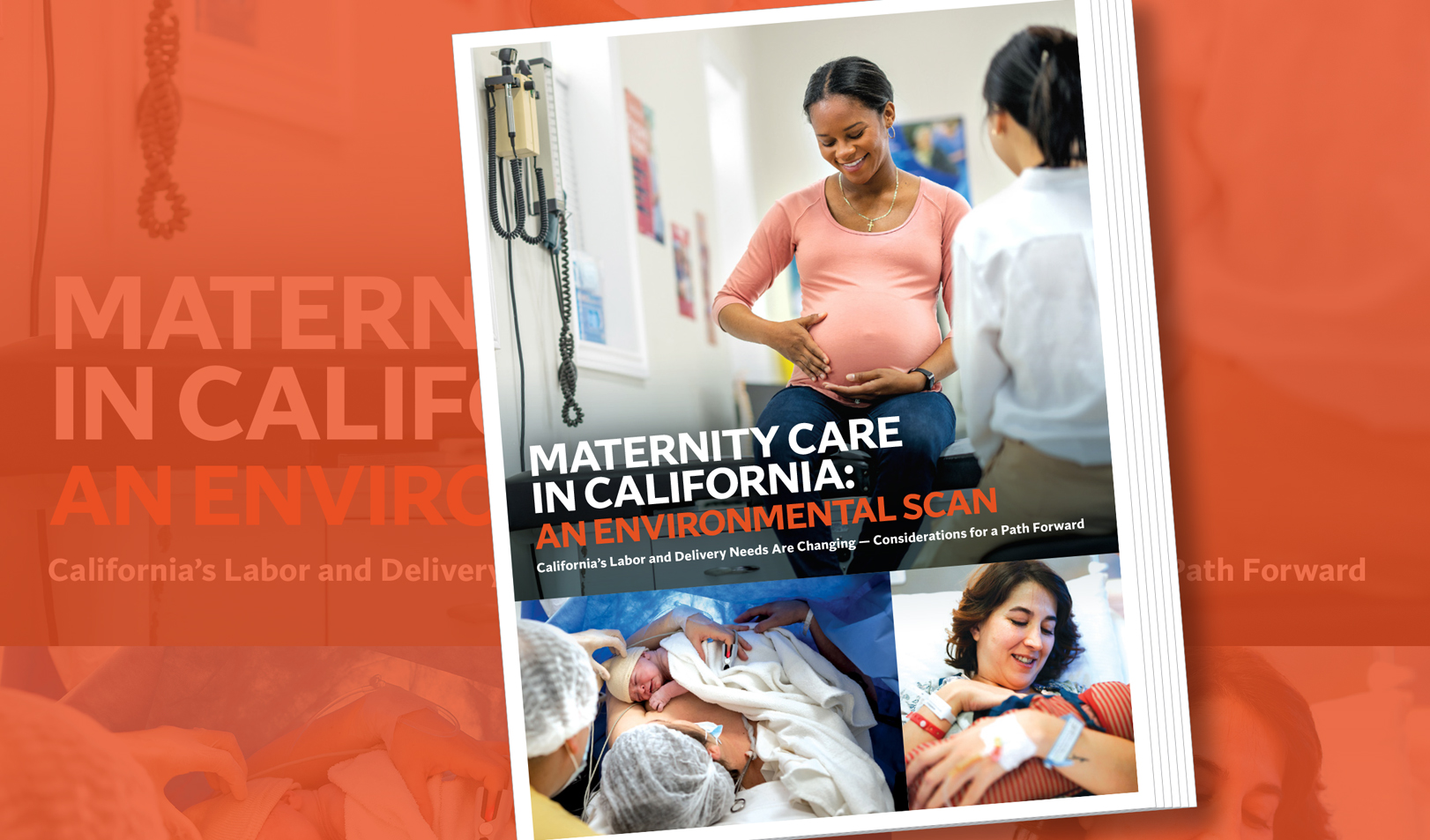The newsroom includes access to CHA News, which provides timely information to members every Thursday and is at the core of CHA benefits. In addition, it is also home to resources such as toolkits and talking points designed to help member hospitals and health systems communicate with internal and external audiences on a range of current health care-related issues. Links to CHA media statements and press releases can also be found here.
Newsroom
Registration for Call on CCJR Bundled Payment Model Closes Tomorrow
CHA reminds members to register by noon tomorrow, Aug. 13, for a member call on the proposed rule for the Comprehensive Care for Joint Replacement (CCJR) bundled payment model. Scheduled for Aug. 14 from 11 a.m. – noon (PT), the call will provide an overview of the proposed rule and solicit member input for CHA’s comments, which are due Sept. 8. CHA encourages all hospitals currently providing lower extremity joint replacement services to participate. While CMS is currently proposing this mandatory model in randomly selected metropolitan statistical areas (MSAs) across the country — including three in California — the MSAs have the potential to change between now and release of the final rule. The policy’s effective date is currently scheduled for Jan. 1, 2016.
To register for the call, visit www.surveymonkey.com/r/ccjrproposed. Members are encouraged to send questions in advance. A dial-in number and materials will be sent to registered attendees on Aug. 13 and posted to the CHA website. Additional information about the proposed rule is available at www.calhospital.org/cha-news-article/cha-issues-summary-ccjr-payment-model-proposed-rule.
CHA DataSuite Releases Analysis of CCJR Payment Model
CHA DataSuite has released a report analyzing the 2015 Comprehensive Care for Joint Replacement (CCJR) model, a new Medicare Part A and B payment model. The proposed rule implementing CCJR would require acute care hospitals in certain selected geographic areas, including three in California, to participate in the model and receive bundled payments for episodes of care where the diagnosis at discharge included lower extremity joint replacement or attachment of a lower extremity that was furnished by the hospital. The DataSuite analysis provides hospitals with a first look at Medicare spending for episodes of care specific to their own patients. The report uses only 2013 data and is not an estimate of the program’s impact, although an impact analysis will be produced when 2014 data becomes available from the Centers for Medicare & Medicaid Services.
CHA Issues Summary of CCJR Payment Model Proposed Rule
CHA has released the attached summary, prepared by Health Policy Alternatives, Inc., detailing the Centers for Medicare & Medicaid Services (CMS) proposed rule implementing the Comprehensive Care for Joint Replacement (CCJR) model, a new Medicare Part A and B payment model. The proposed rule would require acute care hospitals in certain selected geographic areas, including three in California, to participate in the CCJR model and receive bundled payments for episodes of care where the diagnoses at discharge included lower extremity joint replacement or attachment of a lower extremity that was furnished by the hospital. The summary details provisions of the proposed rule, including the definition of the episode initiator; methodology for setting episode prices and payment for model participants; and the use of quality measures and data sharing.
CMS to Host Webinars on its New Joint Replacement Model
As reported in CHA News last week, the Centers for Medicare & Medicaid Services (CMS) has issued a proposed rule that creates a new model in which acute care hospitals in certain selected geographic areas will receive retrospective bundled payments for episodes of care for hip and knee replacements beginning Jan. 1, 2016. This week, the CMS Innovation Center will host two webinars for providers to discuss the new model: July 15 from 10 – 11 a.m. (PT) and July 16 from 11 a.m. – noon.
CMS Proposes Bundled Payment Model for Joint Replacements to Begin in January
The Centers for Medicare & Medicaid Services (CMS) yesterday issued the attached proposed rule that creates a new model in which acute care hospitals in certain selected geographic areas, including three in California, will receive retrospective bundled payments for episodes of care for hip and knee replacements beginning Jan. 1, 2016 through Dec. 31, 2020. The Comprehensive Care for Joint Replacement (CCJR) model would hold participant hospitals financially accountable for the quality and cost of a 90-day episode of care and is intended to incentivize increased coordination of care among hospitals, physicians and post-acute care providers.
Participation in the model would be required by hospitals paid under the inpatient prospective payment system (IPPS) in 75 geographic areas defined by metropolitan statistical areas (MSAs). CMS has proposed participation for three California MSAs, including Los Angeles-Long Beach-Anaheim (Orange County and Los Angeles County), Modesto (Stanislaus County), and San Francisco-Oakland-Hayward (Alameda County, Contra Costa County, San Francisco County, San Mateo County and Marin County).
Budget Trailer Bill Recognizes Alternative Quality Control in Clinical Laboratories
The budget trailer bill adopted as part of the state’s final 2015-16 budget amends Section 1220 of the Business and Professions Code pertaining to clinical laboratories. Specifically, the budget trailer bill allows clinical laboratories to establish an alternative quality control program that meets federal regulations under the Clinical Laboratory Improvement Act and that may include the use of alternative quality control testing procedures already recognized by the Centers for Medicare & Medicaid Services (CMS). Until now, the California Department of Public Health has interpreted regulations in a way that did not recognize federally approved alternative quality control methods, requiring labs to perform frequent quality control tests, which are substantially more expensive than the current federally recognized equivalent quality control (EQC) procedures and the impending individualized quality control plans (IQCPs).
CHA Submits Comments on Proposed Updates to Medicare ACO Program
CHA has submitted the attached comment letter to the Centers for Medicare & Medicaid Services (CMS) about its proposed rule revising the Medicare Shared Savings Program for accountable care organizations (ACOs). CHA generally supports a number of the proposed changes, but offers additional changes that will improve the engagement of hospitals in shared savings agreements. While supporting improvements to the beneficiary assignment methodology, CHA also urges CMS to adopt a prospective assignment methodology across all tracks. CHA also supports the expansion of Track 1 beyond the first three-year performance period, but opposes the reduction of the shared savings rate for participants continuing in Track 1. CHA appreciates changes to Track 2 and the addition of Track 3. However, CHA also urges CMS to consider multiple pathways that allow participants to transition to more population-based payments over time. Additionally, CHA urges CMS to make regulatory changes to allow ACOs to participate fully in patient safety organizations.
CHA Responds to OMHA’s RFI on Initiatives to Reduce ALJ Backlog
CHA has submitted the attached comments to the Office of Medicare Hearings and Appeals (OMHA), responding to its request for information (RFI) on initiatives to address the current backlog of claims pending at the administrative law judge (ALJ) level of appeals. While CHA applauds OMHA’s willingness to begin to address the backlog through a number of pilot programs, the increase in recovery audit contractor (RAC) claim denials will intensify challenges at the ALJ level without fundamental RAC reform. CHA urges OMHA to improve the transparency of data by continuing to release it on a quarterly basis and including additional information, such as the total number of claims, total charges being appealed by the individual Medicare payment system, the most frequent reason for appeals, the number of requests overturned on appeal and the number of cases that moved to the ALJ level. CHA also urges OMHA to improve communication on its established pilots, such as hosting a provider call to educate hospitals on the methodology of its statistical sampling pilot.
OMHA Seeks Input on Initiatives to Address ALJ Backlog
The Office of Medicare Hearings and Appeals (OMHA) has issued the attached request for information (RFI) regarding its current initiatives at the Administrative Law Judge (ALJ) level to address the Medicare claim and entitlement appeals workload and backlog. Since its Feb. 12 Medicare Appellant Forum, OMHA has implemented two pilot programs to provide appellants with options to address claims at the ALJ appeal level. One program provides appellants with an option to use statistical sampling during the ALJ hearing process, enabling them to obtain a decision on large numbers of appealed claims based on a sampling of those claims. The other initiative provides appellants with an option for settlement conference facilitation with an independent OMHA facilitator to discuss potential settlement of claims with authorized settlement officials.
DFEH Issues Modifications to Proposed CFRA Regulations
Late last week, the California Department of Fair Employment and Housing (DFEH) modified proposed amendments to the California Family Rights Act Regulations. DFEH initially issued its proposed regulations on Feb. 21. CHA, in conjunction with the CalChamber and several other trade associations, submitted the attached comments during the subsequent 45-day comment period. The most recent revisions to the proposed regulations are deemed to be minor and, therefore, subject to a 15-day comment period. CHA will again work with the CalChamber to determine whether to submit additional comments, due Oct. 25. For more information about the proposed regulations, visit www.dfeh.ca.gov/FEHCouncil.htm.

